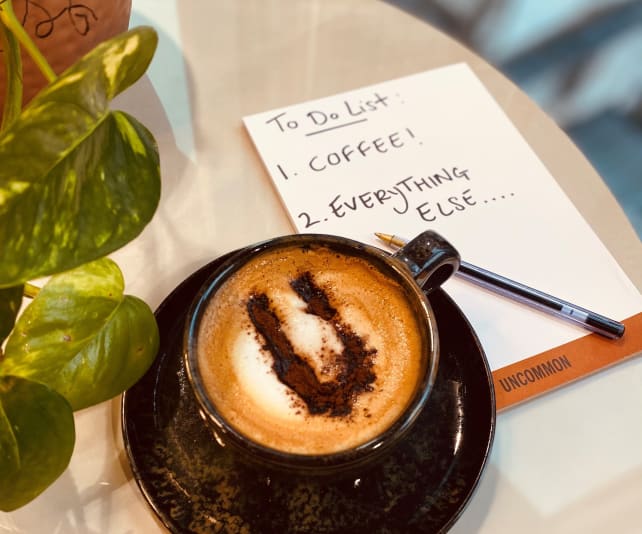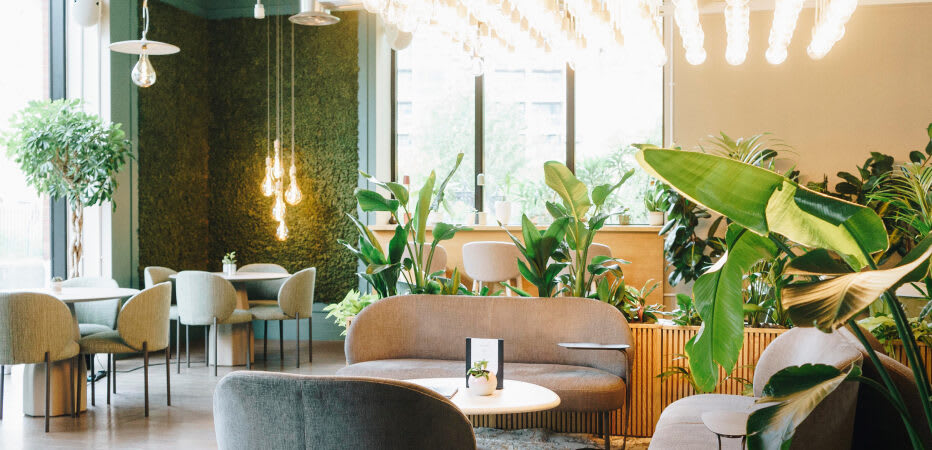
ESG Sustainable Living Guide: Coffee
At Uncommon, we believe that our role as a business should be to contribute, in whatever way we can to finding and supporting solutions to challenges. This is why we have set out an ESG Strategy with truly ambitious market-leading targets – across environmental and social themes – and our approach on how we will deliver these targets over the coming years
We are excited to be starting this journey and invite you to be a part of it over the coming years for positive change.

Uncommon’s ESG Sustainable Living Guide
If you’re an Uncommon member at one of our flexible workspaces or private office spaces, you will receive these straight to your inbox every month.
Based on a particular topic that is in line with our ESG ethos, you will find interesting facts, perks and info that will hopefully give you a kickstart on your journey to being more planet conscious.
Know your coffee beans?
From the beans to the cup, there’s lots of micro-decisions that lead to a sustainable brew. Here’s some quick tips to green your coffee….
1. Don’t waste a bean
Who knew coffee grounds could have so many uses: natural exfoliation for that ultimate glow (check out UpCircle!) or this an inventive company making coffee logs for wood burners and multi-fuel stoves.
Great for making plants grow but ensure it has been composted for 98 days first, otherwise it’s toxic to them. (Source)
2. Reuse that cup
If just one person in every UK business ditched single use, plastic lined coffee cup, we’d save 2.19 billion from landfill every year (and that’s not including the lids!)
Save cash too, with many cafes (including our own!) offering discounts for all us good eggs remembering to carry our cups.
Mythbuster – those coffee cups marked compostable, they’re not. They contain plastic and need industrial composting to handle them.
3. Go plants
Splash of milk with your coffee? go plants!
Oats top the leader board. They tend to have been grown closer to home, meaning little risk that tropical rainforest have been chopped down.
Soya make sure it’s not South American as there’s strong links to deforestation.
Almond is last on the list, but if you do make sure it’s organic. Non-organic almond milk contains pesticides that are harmful to bees, humans and other wildlife.

What goes into our Uncommon Coffee?
- Our coffee provider is a Certified B-Corp
- Certified Carbon Neutral – measuring, reducing and offsetting emissions
- Reduced plastic in their supply chain by over 7 tonnes per year
- Coffee is roasted on Loring Smart Roasters, which produce 80% less emissions than other commercial roasters.
- Coffee beans are purchased without intermediaries, 100% transparency and at an average price of 215% above fairtrade.
- Partnership with The Red Association – helping farmers achieve self-identified goal of stable and sustainable prices for community coffee. Read more here.
Coffee Waste
Our waste collector paper round collects used coffee grounds and transports them to the BioBean Factory. 🔗 BioBean recycles coffee grounds into advanced biofuels, biochemicals and ground pellets used for heating.
Brades Farm Dairy
The milk is fully traceable back to their herd in the beautiful Lune Valley, Lancashire. Constantly innovating, the family have introduced a freedom to choose policy and have managed to reduce the methane emissions of their herd.
Read more about our ESG Strategy here.



